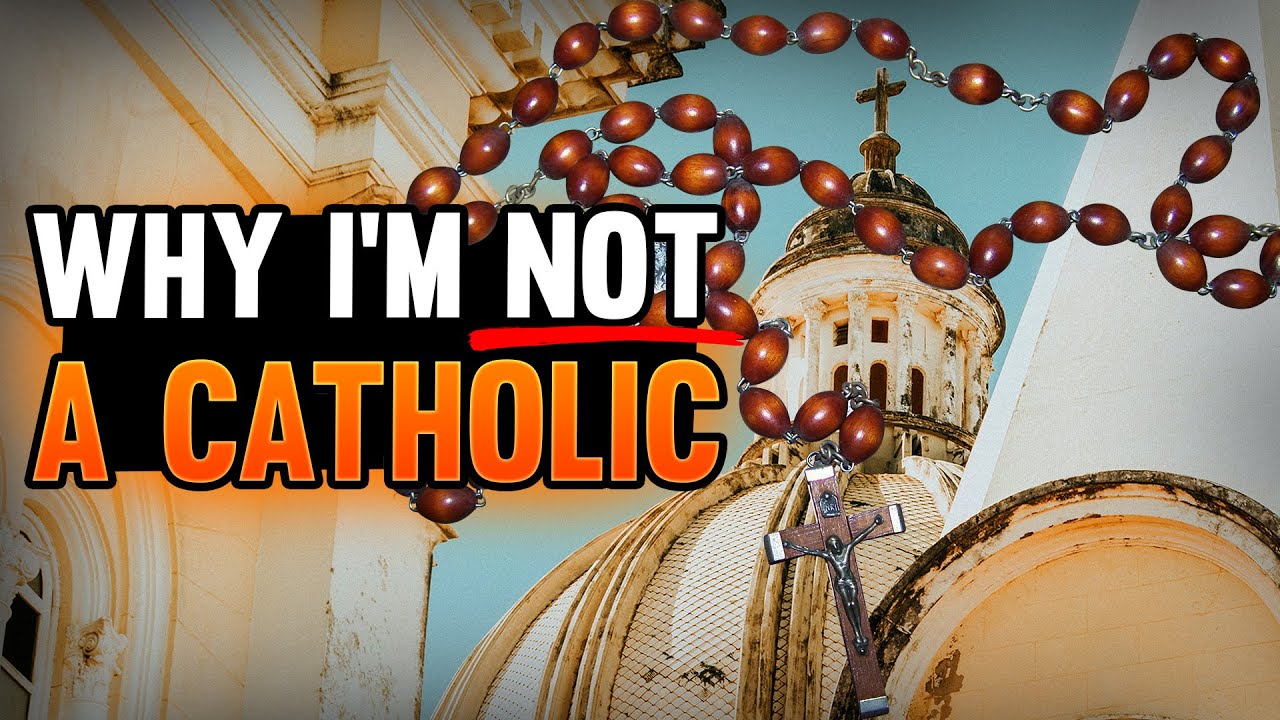What is the Orthodox Perspective on Original Sin?
Summary
TLDRThe video script discusses the concept of Original Sin, highlighting the divergence between Eastern Orthodox and Western Christian (Catholic and Protestant) interpretations. It traces the Western view to St. Augustine, who introduced the idea of inherited guilt from Adam, contrasting with the Eastern belief that baptism sanctifies rather than cleanses inherited sin. The script also touches on the theological implications, such as the Immaculate Conception, arising from the Western understanding of Original Sin.
Takeaways
- 📖 The term 'Original Sin' originates from Saint Augustine, a Western theologian.
- 🌐 The disconnection between Western and Eastern Christians influenced the development of different theological perspectives.
- 🧬 Traducianism, the idea that Adam's sin is transmitted through the generations, is a concept not found in Eastern Orthodox Christianity.
- 👶 Saint Augustine believed that children are born condemned to hell unless baptized, a view not shared by Saint John Chrysostom.
- 🙅♂️ Saint John Chrysostom rejected the idea of inherited guilt and considered it unjust.
- 📚 Augustine's teachings heavily influenced Western Christian theology for centuries.
- 👼 Thomas Aquinas attempted to amend Augustine's views by proposing the concept of limbo for unbaptized children.
- 🛑 Chrysostom argued that children are born without personal sin and do not require forgiveness for Adam's sin during baptism.
- 💧 In the West, baptism is seen as a means to cleanse from original sin, a concept not recognized in the Orthodox Church.
- 👼 The Roman Catholic Church developed the doctrine of the Immaculate Conception to reconcile the virgin birth of Jesus with the concept of original sin.
- ⛪ The Orthodox Church does not entertain the concept of transmitted sin and guilt, viewing it as erroneous.
Q & A
What is the term 'Original Sin' attributed to?
-The term 'Original Sin' is attributed to Saint Augustine, a Western saint and theologian.
How did the fall of European civilization affect Western Christians' theological understanding?
-The fall led to a loss of connection with Eastern Christians and their teachings, resulting in Western Christians developing theologies that sometimes contradicted existing Christian beliefs.
Who is Ambrosiaster and what concept did he introduce?
-Ambrosiaster is considered an unknown person who introduced the concept of traducianism, which is the transmission of original sin from Adam to his children through the seed of the fathers.
What was the understanding of procreation during the time of Saint Augustine?
-It was believed that the seed of the man was implanted in the womb of the woman like a seed in a field, with the woman not contributing to the creation of the new person.
How did Saint Augustine view the effects of Adam's sin on humanity?
-Saint Augustine believed that Adam's sin led to a broken humanity with a broken relationship with God, aroused passions, defects in human beings, and the introduction of death.
What was Saint Augustine's view on the necessity of baptism for newborns?
-Saint Augustine believed that every child born is condemned to hell unless they are baptized, as baptism cleanses a person from the condemnation of original sin.
What was Saint John Chrysostom's stance on the transmission of guilt from Adam's sin?
-Saint John Chrysostom condemned the idea that God would condemn a person for the sin committed by someone else, calling it absurd.
How did Thomas Aquinas attempt to correct Saint Augustine's position on original sin?
-Thomas Aquinas proposed that children who die before baptism are not condemned to hell but are in limbo, with God deciding their fate.
What is Saint John Chrysostom's view on the purpose of baptism for children?
-Saint John Chrysostom viewed baptism as a sacrament for sanctification, the gift of the Holy Spirit, and making children members of the body of Christ, not for the forgiveness of transmitted sin.
How did the Roman Catholic Church address the issue of the Virgin Mary giving birth to God while having original sin?
-The Roman Catholic Church developed the theology of the Immaculate Conception of the Virgin Mary to cleanse her from the guilt and sin of Adam.
What is the Orthodox Church's view on the transmission of original sin and guilt?
-The Orthodox Church does not entertain the concept of transmission of sin and guilt, as it is not present in Eastern Orthodox Christianity.
Outlines

This section is available to paid users only. Please upgrade to access this part.
Upgrade NowMindmap

This section is available to paid users only. Please upgrade to access this part.
Upgrade NowKeywords

This section is available to paid users only. Please upgrade to access this part.
Upgrade NowHighlights

This section is available to paid users only. Please upgrade to access this part.
Upgrade NowTranscripts

This section is available to paid users only. Please upgrade to access this part.
Upgrade NowBrowse More Related Video

Почему Православные страны отстают в развитии - часть 1 - зависит ли экономика нации от религии?

Brief History of Christianity

The Secret Theology on why Catholics See Mary as SINLESS | Sam Shamoun

Christian Denominations - Their different beliefs

History of World Religions - Christianity

Catholicism VS Christianity
5.0 / 5 (0 votes)